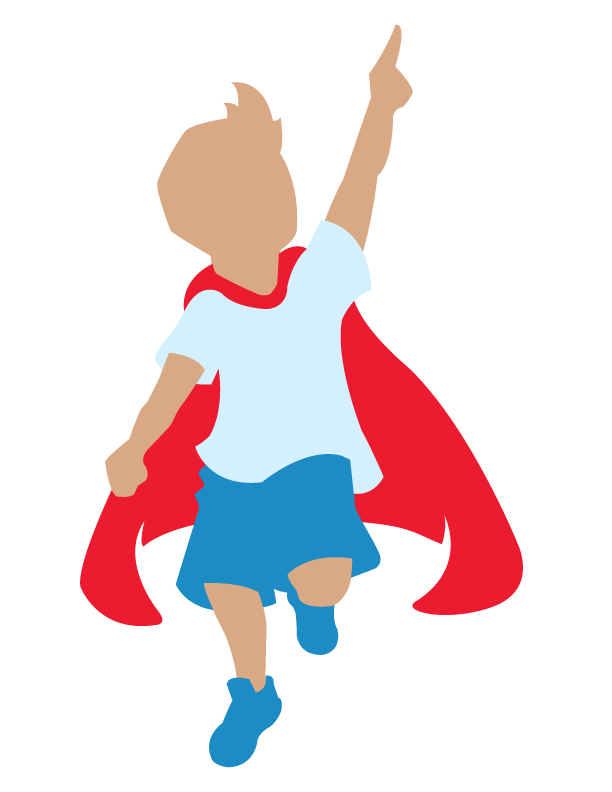Lizard Brain, Wizard Brain
Human brains are in two basic parts. The lower part is where all of our survival instincts and involuntary functions are controlled—breathing, heart rate, reflexes, and hormone levels. Basically, all the stuff you don't have to think about gets controlled by the lower portion of your brain.
We call this the lizard brain. Because it's all the stuff in your brain that a lizard also has in their brain.
This part of a human brain develops first.
The upper part of a human brain is what controls all of the executive function like logic, risk assessment, and language. This is the thinking part of your brain, and we like to call it the wizard brain.
So lizard brain on the bottom, wizard brain on the top.
And the wizard brain develops later. In women, it usually isn't done developing until their mid-twenties, and in men it usually isn't done until late twenties or even thirty.
This is why teenagers are such bizarre creatures. Many of them have the bodies of adults with an under-developed risk assessment center.
But anyway, when a human person feels threatened, their survival instinct puts their brain and body into a high-alert condition that we call being "flooded" because it is triggered from the lizard brain by releasing certain hormones into the bloodstream, specifically cortisol and adrenaline.
And these two chemicals raise your heart rate, accelerate your breathing, push blood to your big muscles, and most critically, it severs the connection between these two parts of your brain.
When you are flooded, your wizard brain is literally turned off.
Have you noticed that you can't think quite as clearly when you are stressed out, you can't find the words, you revert to shorter phrases and repeat the same actions over and over again? That's because the reasoning centers in your wizard brain are on standby. You can't access them. So, instead you do simpler things more decisively.
But the big difference between you and a child is that your wizard brain is fully developed. And the more developed the wizard brain, the harder it is to turn off.
So when children—whose brains are only half baked—regularly experience trauma, their survival instincts get put on a hair trigger. Their wizard brains have a very touchy off switch. They get flooded very easily.
And when they are flooded, they cannot access the part of their brain that controls most of the things that a good parent is going to want them to do:
Think through their options
Consider the risk and reward of certain actions
Choose their words carefully
Be fully in control of their hands and feet
Manage their own emotions
These things are controlled in the wizard brain, which gets turned off when a child gets flooded.
So, what do we do?
Well, when a child "flips their lid" that's another way to express what is going on, the most important thing to do is keep them safe, to continue talking to them, to maintain full control of your own words and actions. You are demonstrating to them that it is possible to be calm is the face of chaos. You are being the adult and making the space around you safe to be in.
You don't try to teach anything new to a flooded child. That's about as effective as lecturing a lizard. Instead you wait. You keep them safe. You help them regain control of their words and their actions And you help them to re-engage their wizard brain.
Then . . . once that is done, you can teach.
We talk a lot more about HOW to help a child through a tantrum, and all of our instructors have lots of experience doing that. So, there are plenty of real-world examples to draw on as well.
If you would like to become a foster parent, our Caregiver Core Training class is one of the requirements, and we hope you'll join us at the next one.
Details at skookumkids.org/cct

